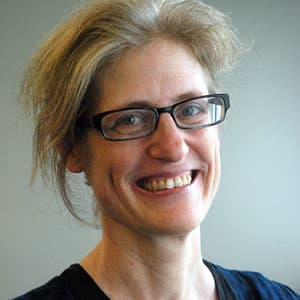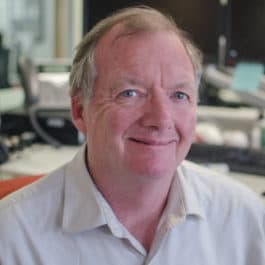Advertisement
Autism is just 'a part of me,' but an obstacle to finding a cancer diagnosis
ResumeThis is Disability Pride Month, marking the 34th anniversary of the Americans with Disabilities Act.
21-year-old Jonathan Gardner is a person who has autism. He lives in East Bridgewater, and he's a cancer survivor.
In 2021, he was diagnosed with a rare form of cancer, but he said getting a doctor's diagnosis was difficult.
Gardner shared his journey with WBUR's Weekend Edition's Sharon Brody.
Interview highlights
Highlights from this interview have been lightly edited for clarity.
On not being taken seriously by doctors:
"I experienced a lot of diagnostic overshadowing trying to get my diagnosis. Diagnostic overshadowing, for example, is when someone like me with, uh, who happens to have autism goes to the doctor and my actual health concerns were overlooked because they saw the word autism in my chart.
"How I was treated is when a doctor dismissed my leg pain as being psychological, suggesting to my mom — not me, the patient — to see a psychiatrist instead of investigating the pain I was experiencing.
"That made me feel, uh, crazy, uh, frustrated, and not respected or cared for."
On how persistence generates results:
"With my mom's support, I continued to advocate for myself and finally found a doctor who listened to my concerns and looked me straight in the eyes and told me she did not know what was wrong with me.
"But I was going to find out and well, she just did that.
"She was able to look at me beyond my diagnosis and treat me as a human being. She validated my pain and believed in me ... My mom and I are building trust with her and with doctors in general, to be honest."
On being an ambassador to change attitudes and break stereotypes:
"I do this in my role as an official ambassador for Operation Housecall. Operation Housecall reaches all the medical students. Our main goal is to build confidence and willingness in medical students by sharing our stories and lived experiences to treat individuals, which gives access to the quality care they deserve.
"When I usually speak with medical students, they often respond with curiosity and empathy. They ask questions about the experience I had navigating the healthcare system. They ask how they can improve their interactions with patients who happen to have disabilities and how to support decision-making, which is an alternative to guardianship, which can be incorporated into their medical practice to support people to make their own decisions and have control over their own lives."
On how Gardner identifies himself:
"I don't want to be put into a box. I just want to be treated as — well, um, I'm a guy that likes many things like I like video games. I like anime. I like pro wrestling. I love my family. I love my friends. Uh, I'm basically just a human being. And the reason why I say mostly with the happen to autism thing is because, well, there's a lot of people just don't see it that way.
"Sometimes people see it as you have autism. That is your identity. I don't. I personally just see it as a part of me like, well, a leg or an arm and so much more. We're all similar. All human beings at the end of the day."
Editor's Note: Jonathan Gardner has previously written for Cognoscenti, WBUR's ideas and opinion page.
This segment aired on July 27, 2024.

